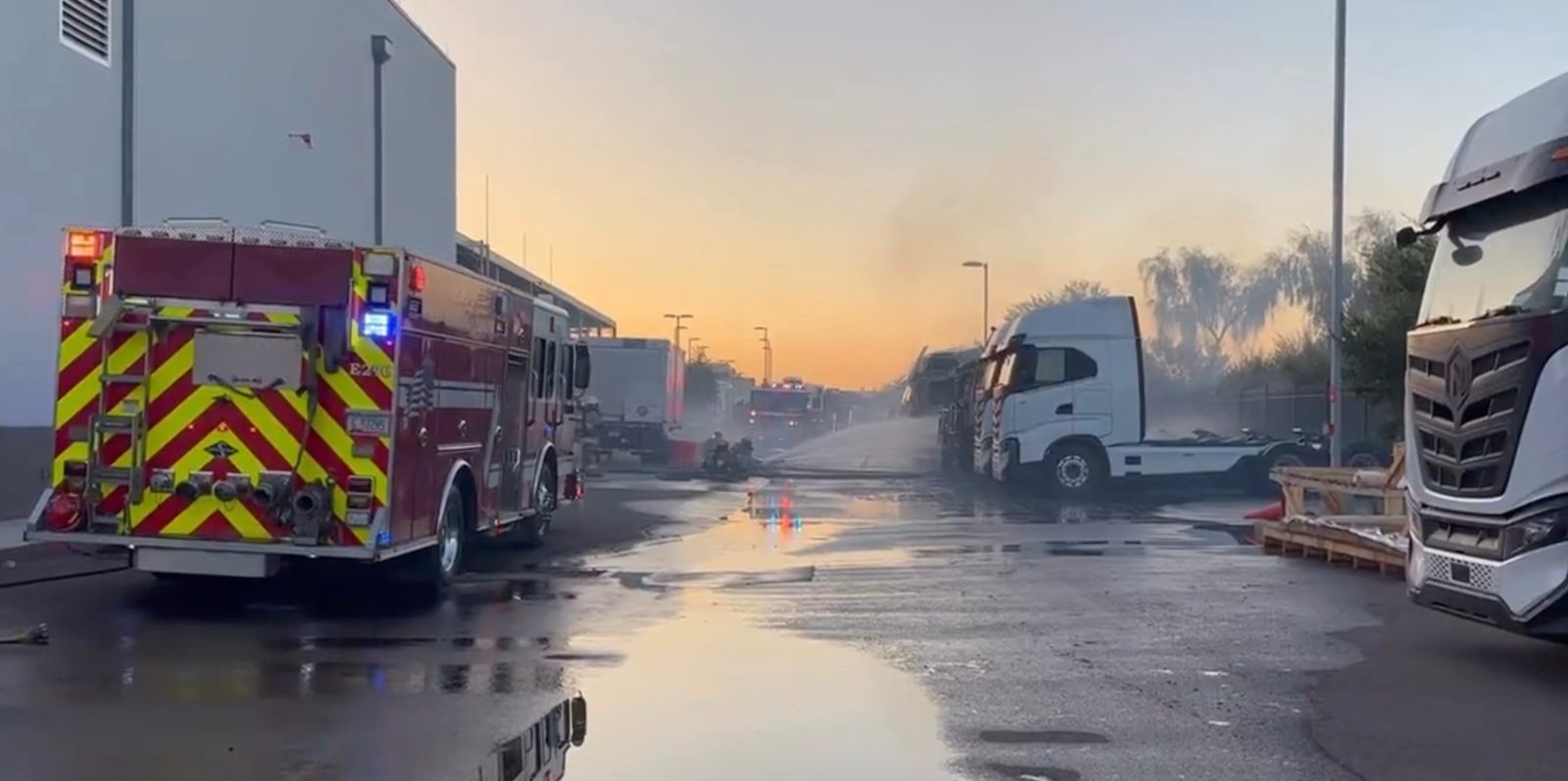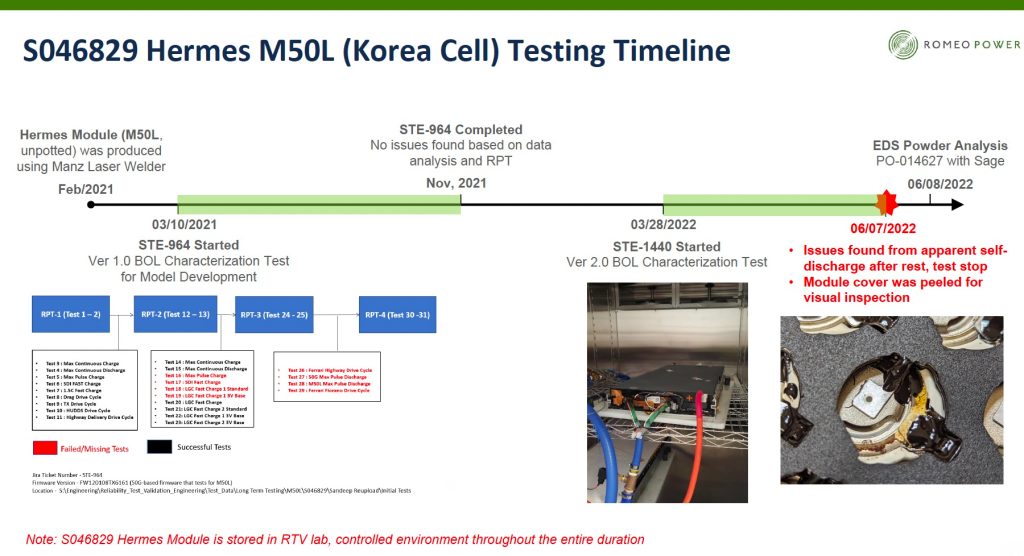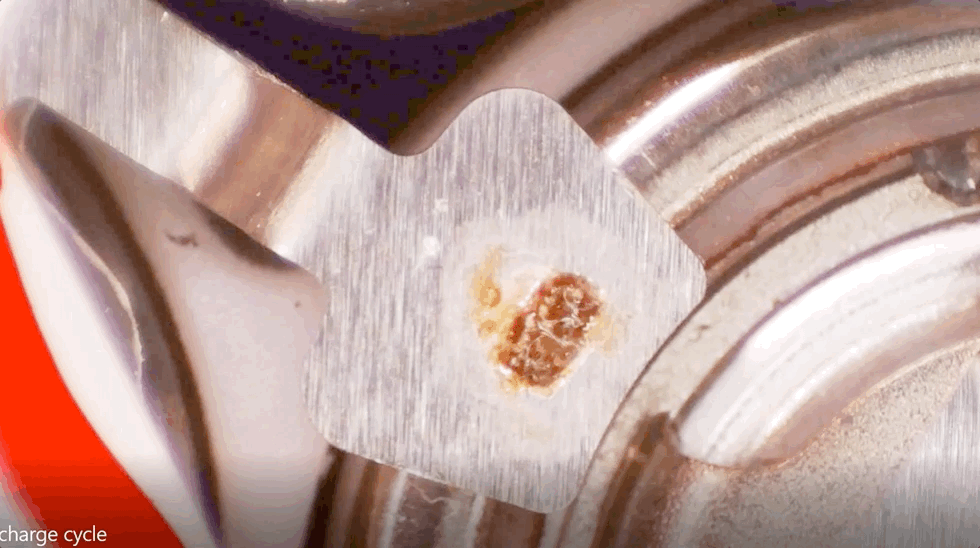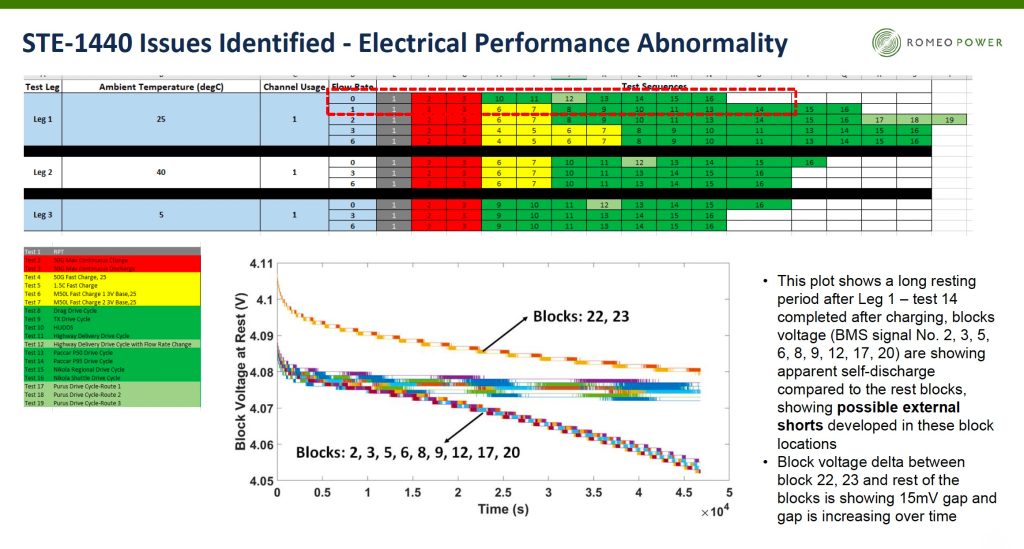
Nikola Corporation had a significant safety defect in the battery modules used in its electric semi trucks that can result in fires. Yet, the company was quick to claim “foul play” when five trucks caught on fire at its headquarters last week.
Nikola says that it is still investigating the situation.
Last week, we reported on the Phoenix fire department confirming that five Nikola semitrucks caught on fire at its headquarters. The company was quick to tell the public it believed “foul play” was involved in the fire, but it didn’t have a lot of evidence to back the claim. It only mentioned that a vehicle was spotted on the scene prior to the fire.
The Phoenix fire department was still investigating the fire when Nikola made that statement. We contacted the fire department to ask for an update on the investigation when it is available, but we haven’t received an update yet.
In the meantime, we received concerning information about the battery modules that Nikola uses in its electric trucks, which company insiders believe could have led to the fire.
Nikola gets its battery modules for its Tre semitruck from Romeo Power, a company that it acquired last year after already being its main client for battery pack design and manufacturing. Romeo designed and produced the Hermes and Legion battery modules for the Nikola Tre.
Last year, engineers working on the battery modules detected a major problem where the cells were corroded and would self-discharge.
Electrek saw an internal report that investigated the issue:

A team inspected a number of modules in production, and many had the same issues.
They eventually tracked the problem down to the laser welding puncturing some of the battery cells in the modules.
The tests in the report were performed on the Hermes module because, unlike the Legion module, it doesn’t have potting on the cells, which can hide the puncture issue. However, the problem was first identified in the Legion module, which is the one that was delivered to Nikola during the time it started production of the Tre, according to a source familiar with the matter.
Electrek was shown a video of the problem with the cells corroding within only two cycles in some cases:

The corrosion can create heat generation and increase resistance at the joint.
It can create several problems, including lithium plating and an imbalance in the voltage delta, which was mentioned in Romeo Power’s report on the issue:

The insider says these issues could all lead to potential thermal events in the battery packs, especially as they continue to cycle.
According to a former Romeo employee with knowledge of the problem, engineering executives recommended shutting down the production of the modules. However, Susan Brennan, who was CEO of Romeo at the time, decided to keep production going and try to fix the issue in parallel.
Electrek reached out to Brennan for an interview, but we didn’t get a response.
Nikola’s leadership was also made aware of the issue, but the company already had millions of dollars worth of battery modules meant for its electric semitrucks, which the company was in a hurry to bring to production as it was hemorrhaging cash.
On top of it, the relationship of buyer-supplier between Romeo and Nikola was blurred now that the latter was acquiring the former.
A company insider told Electrek that Romeo kept producing potentially damaged battery modules for Nikola and that it’s possible some of those battery modules could have made it into Nikola trucks.
While we can’t confirm that it led to the trucks catching on fire at its headquarters last week, it is a possibility, as punctured cells can lead to thermal events in batteries.
We contacted Nikola about this issue, and the company acknowledged that it was aware of the problem. Nikola believes no damaged modules have made their way into production trucks.
A spokesperson wrote in an email:
For production Nikola vehicles, Nikola requested Romeo not to ship known leaking modules. When weld issues were identified at Romeo’s end-of-line process, a quarantine process was implemented which required performance of a thorough inspection on every module, including end-of-line functionality checks. To our knowledge and based upon assurances made by our supplier Romeo, Nikola did not put any modules with weld issues in our production vehicles.
It claims to know that based on “assurances made by [its] supplier Romeo.” Romeo is now owned by Nikola, and we’ve seen evidence that the problem was ongoing when Nikola was producing the Tre. A company insider disputed that there was “a quarantine process.”
Also, it’s hard to confirm which modules have punctured cells, as the Legion module has potting hiding the joints of the cells.
A Nikola spokesperson tried to convince Electrek that the problem was only with the Hermes module and that the Legion module was the one that ended up in the Tre. However, a source familiar with both modules told Electrek that the cell puncture issue was first identified on a Legion module at Romeo Power’s Vernon facility. It was also identified in the production modules at the Cypress facility later on.
On top of the known battery problem, a company insider told Electrek that Nikola’s claim of “foul play” was a stretch. We were shown reports and videos of fire resistance testing showing the battery modules surviving extended exposure to powerful flames:

A company insider familiar with the battery modules told Electrek, “You could literally throw burning fuel on these packs, and unless it’s sustained for a long period of time, you wouldn’t even notice.” Therefore, the insider finds it hard to believe that someone was able to light the trucks on fire – leading to battery pack fires.
Obviously, the situation would look better for Nikola if someone had set the trucks on fire rather than the fire potentially originating from the batteries.
When asked by Electrek if the company is still considering “foul play,” Nikola said that it is “not ruling out anything” and is running “multiple investigations” that “could take weeks.”
The fire comes at a difficult time for Nikola. The company has only a few weeks left to convince its shareholders to let them issue more shares in order to raise more cash to keep the company going.
Issuing more shares would further dilute Nikola’s stock, which is already down almost 94% over the last two years.
Electrek’s Take
Of course, we need an independent investigation into this issue by experts, but it is not a good look.
As for the foul play claim, I feel like we would already have clear information on this if it were true. I doubt that Nikola wouldn’t have cameras pointed at what was millions of dollars worth of brand-new electric trucks. If there had been any foul play, it would have been identified and made public by now.
On the other side, I saw clear evidence that Nikola had a major defect in its battery modules and solid insider sources that say those modules were shipped to Nikola with no clear evidence that the problem was ever fully solved before it produced the Tre truck.
The question seems to be whether or not Nikola really understood the situation and the risk that came with using the modules amid the acquisition of Romeo, but it’s not a good look either way.
Normally, I’d find it hard to believe that a company would knowingly take the risk of putting those modules inside its vehicles, but it’s not impossible, considering the company was under tremendous pressure to deliver the truck.
Nikola has been working hard to distance itself from the era of Trevor Milton, its founder, and all the fraud that happened at the time, but I certainly wouldn’t be surprised to see them cut corners again. But it sounds like there’s also the potential that Nikola thought that the Legion modules were fine when they put them in their trucks.
And before all the NKLA investors jump on me for this report, no, I don’t have and never had a short position on Nikola. I would love for Nikola’s electric truck program to be successful, as I think removing emissions from trucking is an extremely important mission.
With that said, it needs to be made safely and sustainably. That doesn’t seem to be the case with Nikola right now.
FTC: We use income earning auto affiliate links. More.












